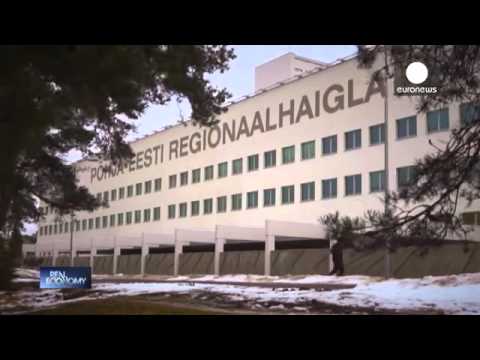Almost half of us in Europe lack digital skills, while 90% of jobs in the future will need them. So we sent Denis Loctier off to tech mad Estonia to see how we can re-skill ourselves for the most seemingly un-digital of jobs!
Estonia might not be the richest of the EU countries, but when it comes to digital public services, it’s at the forefront. Estonian e-thinking is best symbolised by its electronic ID card which serves as a digital signature, allowing citizens to submit their taxes, sign contracts, vote or pay for their public transport – all electronically.
“Compared to the whole of the EU, Estonia is a relatively small market. Still, Estonian achievements – as well as its shortcomings – in the digital area provide a valuable study for the rest of Europe,” reported Denis Loctier.
The local healthcare system shows how well even the most traditional domains can move to digital. All the health records and prescriptions are electronic, so an emergency room can access all the patient’s medical details by his or her electronic ID number.
“All the analyses, all the CT scans, sonography, all the previous surgery that has been done – I mean, everything. A lot of old-fashioned doctors won’t be starting to use it, but the new, oncoming generation is definitely gonna use it,” explained Erast-Henri Noor General surgery resident, North Estonia Medical Centre.
Software developers worked with doctors to make these new tools easy to use, minimising re-skilling needs. Still, this digital evolution unavoidably affects the workforce.
“The doctor who is doing today quite simple data administration jobs must be freed of this activity, and we’re pushing those activities to nurses. Nurses’ activities – what they are doing today – we are pushing to medical administrator staff, and so on,” said Marko Kilk, IT Director, North Estonia Medical Centre.
So does the Digital Single Market kill or create jobs? Ain Aaviksoo, who is in charge of E-services at the Estonian Ministry of Social Affairs, believes that shifting of some work to less-qualified staff improves both efficiency and employment.
“Digital Single Market, by all means, creates jobs. It will shift away some of the jobs from some areas where mostly human labour has been used, and healthcare is one example, say, in hospitals – but it will create jobs in other areas, and it will also create jobs in the companies who will develop those products, which we can sell also outside of Europe.”
The Estonian digital economy lags behind the EU average in electronic information sharing, RFID use and electronic commerce, with the Digital Single Market now holding the key.





